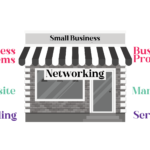Have you got a growth mindset?
As a small business owner, your mindset and the mindset of your team can have a big impact on the business. Whether that’s through the business’ attitude to challenges or how setbacks are perceived and dealt with. Businesses that view challenges as opportunities to grow and setbacks as opportunities to learn for the future may be demonstrating what’s commonly referred to as a growth mindset.
What is a growth mindset?
Carol Dweck, Professor of Psychology at Stanford University, developed the concept of growth mindset while studying school students’ attitudes to failure. From her research, Dr Dweck identified that when the students believed that they could get smarter, they understood that effort made them stronger. This then made them put in extra effort, which led to higher achievement. This is otherwise known as a growth mindset. On the contrary, individuals with a fixed mindset believe that basic qualities such as talent and intellect are the result of ingrained traits and that talent alone creates success.
Individuals with a growth mindset tend to view feedback as a way to gain useful insights and view effort as essential for development. They also pursue opportunities for challenging development. Those with a fixed mindset may shy away from challenges at work, or situations that they’re not familiar with as they feel that their talents aren’t suited to the challenge at hand. They may also take feedback more negatively than those with a growth mindset.
| Individuals with a growth mindset may have the following viewpoints: | Individuals with a fixed mindset may have the following viewpoints: |
| View intelligence as being able to be developed. | View intelligence as ingrained/static. |
| Embrace challenges. | Avoid challenges. |
| Are persistent when faced with setbacks. | Give up easily when faced with setbacks. |
| View effort as the path to mastery. | View effort as being fruitless. |
| Open to feedback and learn from it. | Not open to feedback. |
| Feel inspired by the success of others. | Feel threatened by the success of others. |
A growth mindset can be applicable to small businesses in a number of ways. For small business owners, the amount of effort being put into the business is likely to be incredibly high. However, the concept of a growth mindset can extend beyond the amount of effort put in by the business owner. Businesses can also be affected by the mindset of the wider team, and how they view learning and development.
How could a growth mindset benefit small businesses?
Mindset can have a big impact on the future success of small businesses. Whether that’s the mindset of the business owner, the team or the company as a whole. According to one research study, employees at companies with a fixed mindset often said that just a small handful of ‘star’ workers were highly valued. This led to the employees feeling less committed than employees of growth mindset companies. The same study found that employees in growth mindset companies are:
- 34% more likely to feel a strong sense of ownership and commitment to the company.
- 65% more likely to say that the company supports risk taking.
- 47% more likely to say that their colleagues are trustworthy.
Developing a growth mindset within the business could therefore mean that a higher proportion of the team feel engaged with the company and motivated by the work that they do. This could then, in turn, lead to a higher level of productivity within the business. According to one research study, motivated employees were 31% more productive than demotivated employees.
Mindset also affects the way in which businesses deal with failure. Businesses with a growth mindset may view failure as an opportunity to learn and develop which can help to inform business decisions in the future. Having this positive outlook on setback can also be much more beneficial to overall team morale. It could result in people being more open to trying new things that are outside of their comfort zone, opening up much more opportunity for innovation and creativity within the business.
A business with a growth mindset could also have a much more effective performance review process than a business with a fixed mindset. This is because feedback would be encouraged and viewed as an opportunity to inform future development, as opposed to it being taken personally and seen as a negative. This could therefore mean that feedback during the review process is taken on board and acted upon.
For more information, please visit AXA PPP healthcare’s small business advice centre.






